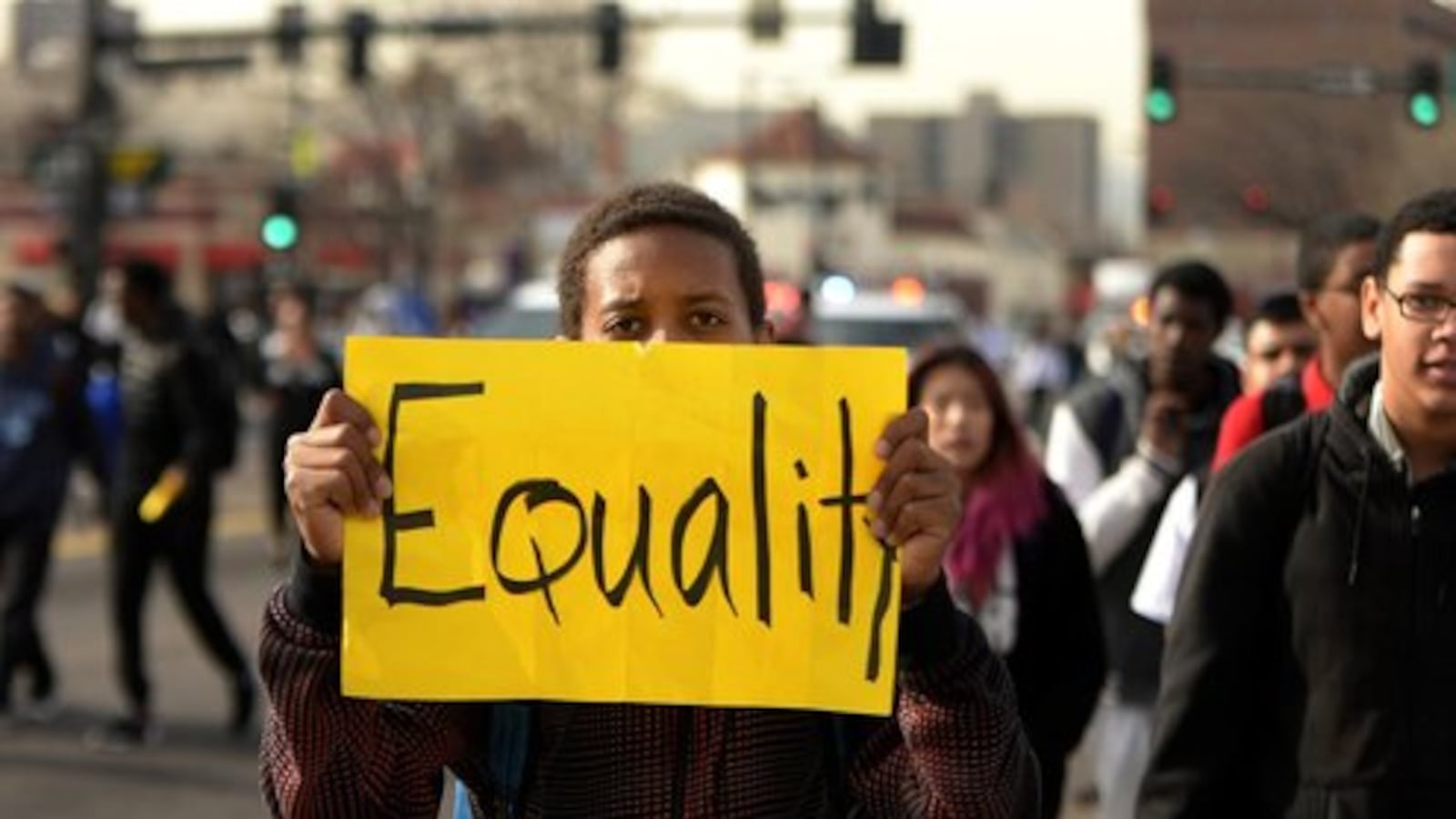As the nation reels from two killings of black men by police, plus the murder of five police officers at a vigil about those killings, schools are faced with familiar questions: how to help students process the unsettling events, and how to help teachers talk about them, too.
Those conversations have become a painful priority in many schools over the last two years, since teenager Michael Brown was killed in Ferguson, Mo., and the inchoate Black Lives Matter Movement grew in prominence.
Chalkbeat reporters have been inside schools across the country as a few of those conversations about race and policing have unfolded. Here’s what they looked like.
Training students on how to interact with police
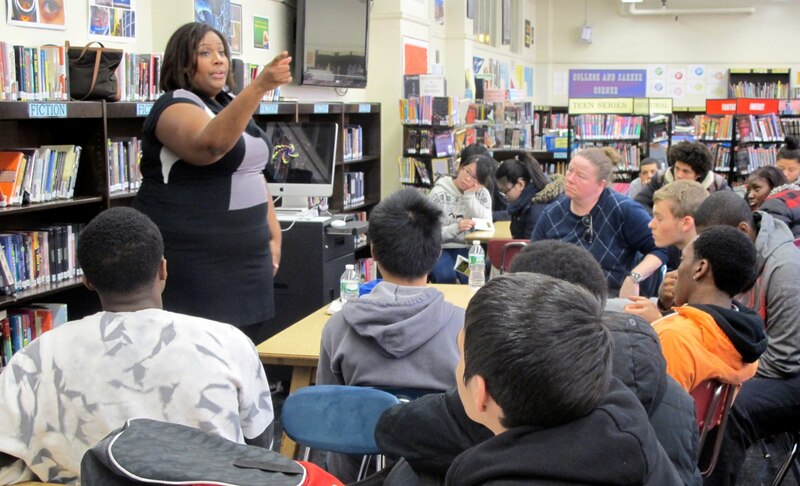
When students at New York City’s East Side Community School were trained Tuesday on how to behave during police stops, many found the information all too handy.
“It’s like getting bullied, in a way,” explained one student who said he was recently confronted and questioned by an officer while buying snacks during a school lunch break. “When you know your rights, you feel more protected.” (November 2014)
Walking out of school in solidarity
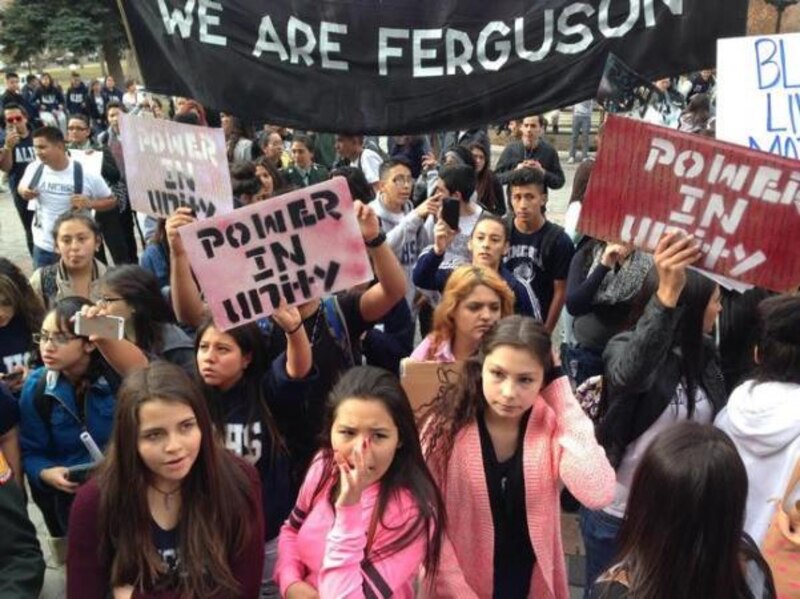
Students across Denver walked out of classes to protest police brutality and show support for the emerging Black Lives Matter movement. For many, their engagement continued once they returned to school.
“It’s important for our students to join these critical community conversations, and they have demonstrated their engagement in these important issues by interjecting their voices in thoughtful and peaceful means,” a Denver principal told parents. “We hope to see this thoughtful dialogue carry into the classroom.”
One English class read a poem from the 1930s about police brutality. “They were really listening to each other,” a teacher said. “They really wanted to talk about it … a kid was killed that was about their age.” (December 2014)
Tackling police killings during teacher training last year …
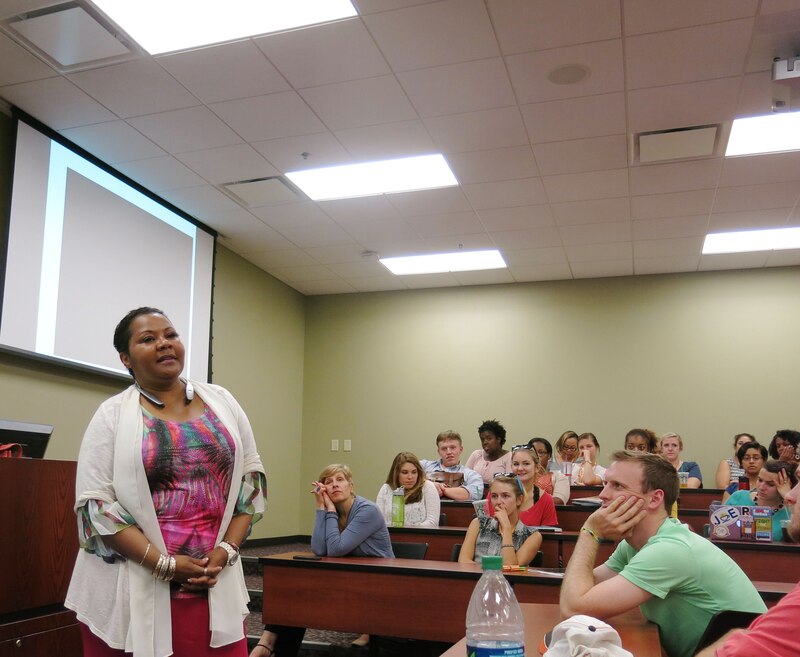
A week after nine black people were shot and killed during a Bible study inside their church in Charleston, S.C., Donna Ford taught Teach for America’s newest Nashville recruits about how to address race in their classrooms.“Many people believe they’re bias-free, or they can’t possibly be racist or classist or sexist,” said Ford, an education professor who focuses on culturally responsive teaching, a recent priority for Teach For America. “To help teachers acknowledge that they have biases is the first step to letting them have some sense of relief.” (July 2015)
… and again this year
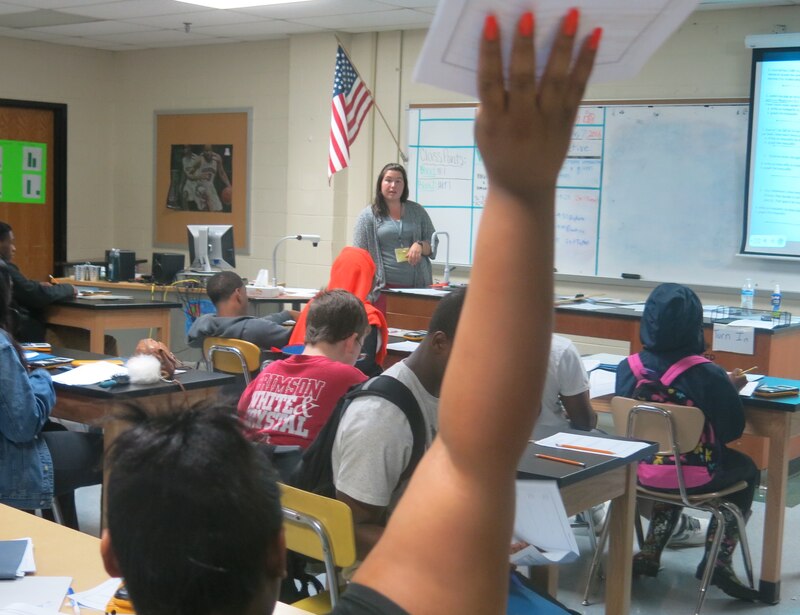
Nashville teachers-in-training conferred about how the two killings of black men might affect their students. Then they talked to the students themselves, nearly all of whom are black and who are making up credits so they can graduate on time.
The conversation was exactly what Teach For America has asked its regional teams to encourage as they prepare new teachers to enter schools that serve mostly poor students of color. The organization has long faced criticism for throwing teachers into challenging environments without enough training or local knowledge.
“We can’t not do these things,” said TFA’s Nashville director. “It’s great for teachers to know their communities, history … and have a dialogue around current events.” (July 2016)
Debating the role of Black Lives Matter in education reform
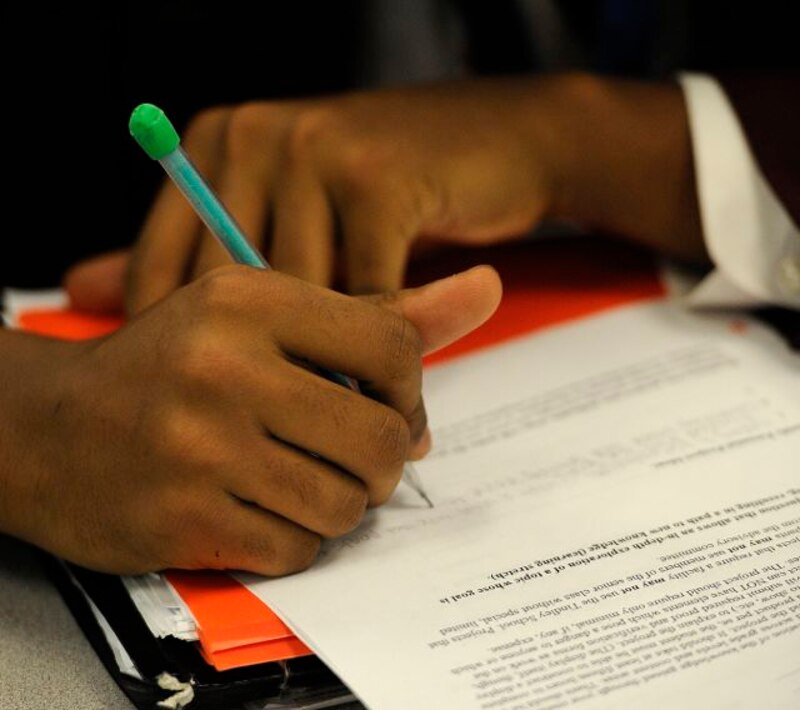
A private debate about the role of race in the community of people who call themselves “education reformers” leapt into public view after an annual conference took a different tone. The conversation is worth reading. (May 2016)


